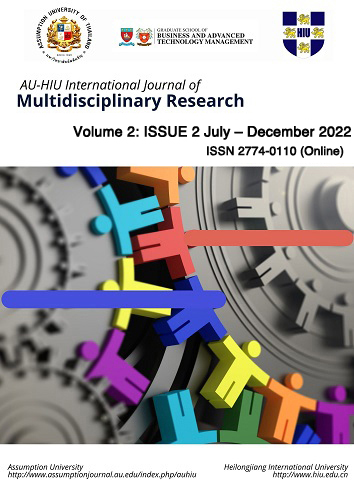Factor Influencing Green Food Purchase Intentions and Health Consciousness During COVID-19 Pandemic in Bangkok, Thailand
Keywords:
Green food, COVID-19, Purchase intention, Health consciousness, ThailandAbstract
The study examines the variables that influence attitude, subjective norm, perceived behavioral control, and the impact of COVID-19 on green food purchase intention and health consciousness during COVID-19 in Bangkok, Thailand. The study proposed exploring the factors that affect green food purchase intention and health consciousness by using the secondary data method of archival research. This study initiated a unique conceptual framework by combining four frameworks from previous studies. The researcher uses the non-probability sampling method by applying convenience sampling, snowball sampling, and purposive methods with a sample size of 447 as the target respondents. The statistical software in social science was used to analyze and collect data. Moreover, the findings of this research indicate that independent variables of health consciousness, attitude, subjective norm, perceived behavioral control, and impact of COVID-19, only perceived behavioral control was not statistically significant to influence green food purchase intention. After the descriptive analysis and linear regression analysis, the results showed that attitude, subjective norm, health consciousness, and impact of COVID-19 positively influenced green food purchase intention. Thus, the perceived behavioral control negatively toward green food purchase intention, which means all variables accepted perceived behavioral control significantly influenced green food purchase intention.
Downloads
Published
How to Cite
Issue
Section
License
Copyright (c) 2022 Satreerat Katpia, Chompu Nuangjamnong

This work is licensed under a Creative Commons Attribution 4.0 International License.


